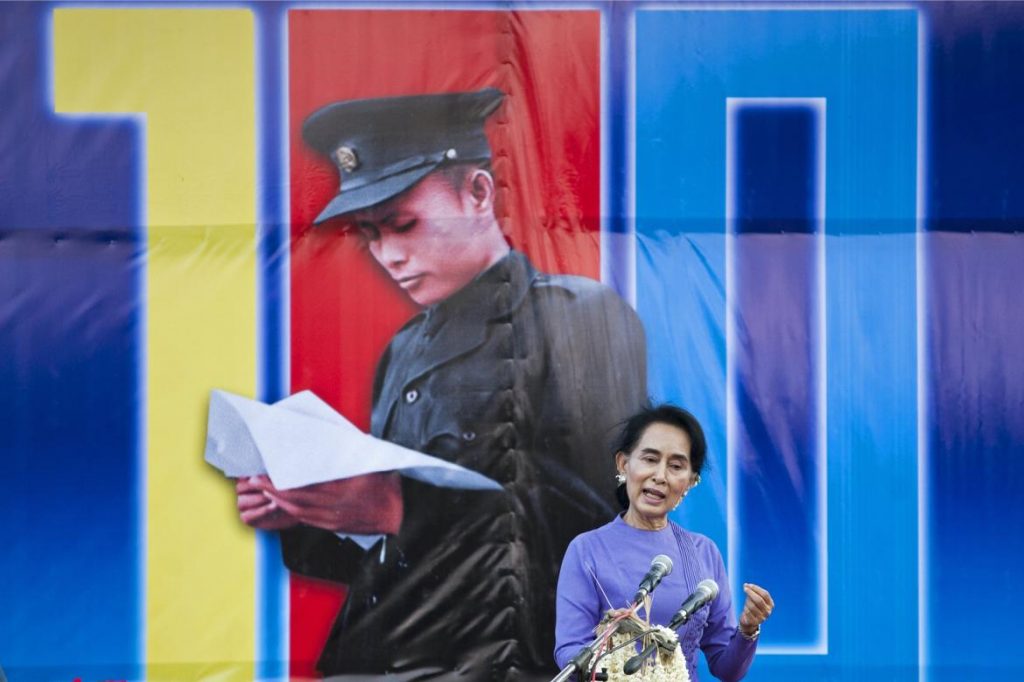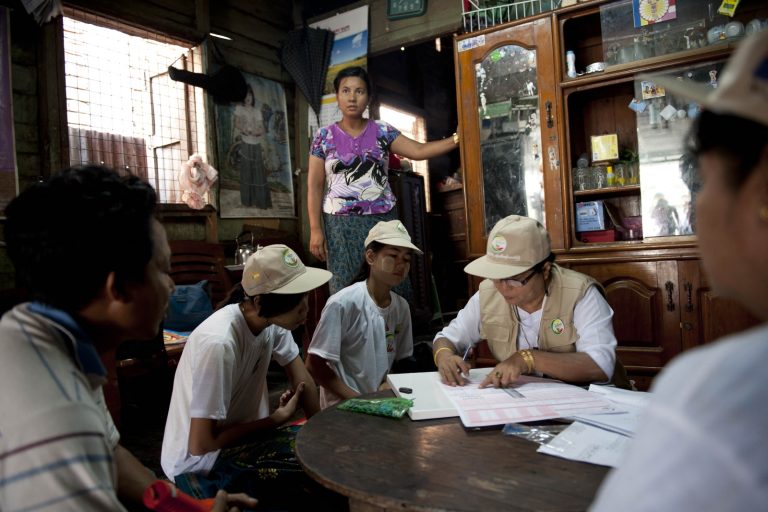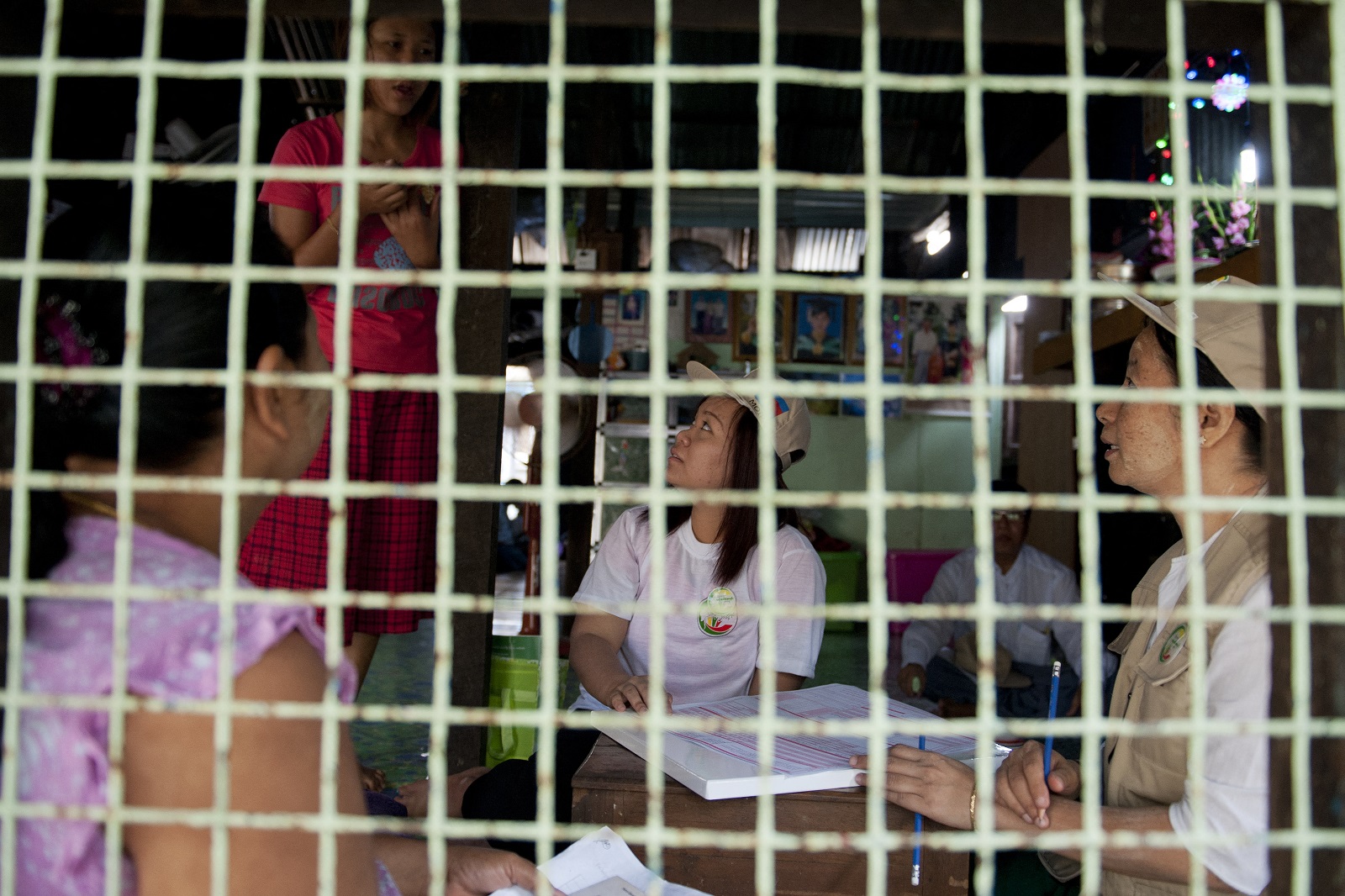With the recent failed attempt to amend the constitution leaving Daw Aung San Suu Kyi out of contention for the presidency, might the NLD back Thura U Shwe Mann for the highest office?
By MRATT KYAW THU | FRONTIER
The failed move in parliament last month to amend sections 436 and 59(f) of the 2008 Constitution has made crystal clear that Daw Aung San Suu Kyi cannot be Myanmar’s next president.
In 2012, the leader of the opposition National League for Democracy – that had boycotted the 2010 general election – chose to play along with the ruling Union Solidarity and Development Party and contest by-elections.
The NLD said at the time that it had decided to seek representation in parliament to achieve its objectives of national reconciliation, constitutional reform and the application of the rule of law.
The party’s hopes of achieving these objectives were presumably boosted by the by-elections, in which it won 43 of the 44 seats it contested.
Support more independent journalism like this. Sign up to be a Frontier member.
But its aspirations for constitutional reform have been thwarted by resistance from conservative forces opposed to amending article 436, which gives the unelected military members of parliament who hold 25 percent of its seats an effective veto over charter reform.
A glimmer of hope for change evaporated in parliament on June 25, when five of six proposed constitutional amendments were voted down, despite attracting the support of a majority of MPs.
They included a proposed amendment to article 436 that would have lowered the threshold for a vote in favour of charter change to 70 percent from 75 percent. The proposal was defeated, despite attracting the support of 388 MPs, or 66.55 percent, of the 583 parliamentarians at the sitting of the 664-member Pyidaungsu Hluttaw.
The vote also represented a resounding defeat, for the time being, of the rationale behind the NLD’s decision to enter parliament.
Daw Aung San Suu Kyi was undaunted. “We will show that we can form a cabinet after next election despite our failed bid to change the constitution in the hluttaw,” she told reporters after the June 25 vote. “Please vote for us.”
If Daw Aung San Suu Kyi cannot be president, who are the likely contenders for the nation’s most prestigious role after the November 8 election?
The six-party talks – that brought together President U Thein Sein, Amyotha Hluttaw Speaker U Khin Aung Myint, Pyithu Hluttaw Speaker Thura U Shwe Mann, Tatmadaw Commander-in-Chief Senior General Min Aung Hlaing, the NLD leader and Rakhine National Party chairman Dr Aye Maung – might offer an insight.
After the June 25 vote, the NLD leader, formerly a staunch supporter of the six-party talks, stopped encouraging the meetings. But other players have used the talks as an opportunity to build bridges, with one eye on the elections.
Sources within the Rakhine National Party say Dr Aye Maung told a meeting of its members that Thura U Shwe Mann had promised to help him become chief minister of Rakhine State. It appears the shrewd parliament speaker is bringing ethnic leaders into his election strategy. The RNP is one of the strongest ethnic parties.
“Of course U Shwe Mann is persuading ethnic leaders to support him, but he will not give any seats away,” said U Aye Thar Aung, an RNP member prominent in Rakhine politics who won a seat for the NLD in the 1990 election.
Unity within the ruling Union Solidarity and Development Party is not as solid as it has been.
Thura U Shwe Mann is not popular with all USDP MPs and the party’s leaders are jostling for chances to contest seats. A recent meeting of the USDP central executive committee blocked moves by two President’s Office ministers, U Soe Thein and U Aung Min, to contest seats in Kayah State, where they were successful in the 2010 election.
For Yangon Region USDP secretary U Tha Win the situation is clear. “Party members are paying respect to chairman U Shwe Mann, because we see that no man is smarter than him.”
U Tha Win said that if Thura U Shwe Mann does not become president, the USDP may decide to choose its presidential candidates on the basis of seniority and nominate party vice presidents U Htay Oo and Thura U Aye Myint.
“Some say U Shwe Mann is cooperating with Daw Aung San Suu Kyi to find support for his presidential ambitions,” U Aye Thar Aung said. “But it is hard to say from the sidelines.”
Thura U Shwe Mann and NLD cooperation?
The NLD issued a denial last year after Reuters reported that the party was prepared to support Thura U Shwe Mann for the presidency if Daw Aung San Suu Kyi remained ineligible to contest the position. The report was wrong, the NLD said in a statement, and Reuters apologised. But political insiders keep repeating the same scenario.
With the June 25 vote in parliament leaving Daw Aung San Suu Kyi ineligible to contest both the presidency and the vice-presidency, how likely is it that the NLD will support the Pyithu Hluttaw Speaker and USDP chairman for the nation’s top job?
“It is an option, but not a likely one,” said political analyst Dr Yan Myo Thein. “The NLD has to take the feelings of the party members into account as well. Confrontations and an internal crisis might occur between executive members and lower ranking party members.”
The NLD’s plan B
With Daw Aung San Suu Kyi out of the race, there’s been speculation about who the NLD might nominate for the presidency. NLD patron and former general U Tin Oo was until recently the party’s only qualified candidate under section 59(d) of the constitution, which requires the head of state to be “well acquainted” with political, administrative, economic and military affairs.
But the only constitutional amendment to be approved on June 25 changed “military” to “defence”, making NLD members without a military background eligible to be nominated.
Daw Aung San Suu Kyi told Reuters in April that a boycott of the election was an option if the constitution was not amended, but has since retreated from that position.
Dr Yan Myo Thein reflected that an election boycott would have dramatic consequences because it would result in the NLD being abolished under the election law. “Daw Suu won’t play the political game from the outside in my opinion.”
With no other obvious NLD candidates for the presidency and the prospect of the USDP winning a significant slice of the electoral pie in November, much attention has focussed on the relationship between Thura U Shwe Mann and Daw Aung San Suu Kyi. It has not gone unnoticed that it is a relationship the USDP chairman has assiduously cultivated.
It is also a relationship that has caused discomfort within the NLD. Central executive committee and rank and file members of the party have told Frontier they would oppose any move by Daw Aung San Suu Kyi to support Thura U Shwe Mann for the presidency. However, NLD members have almost always obeyed the will of the shining beacon of the democratic opposition, even though her aura has faded recently.
Timing is everything, said NLD member and former political prisoner, U Sai Min Thein. If the NLD wins more than 50 percent in one of the houses of parliament in November, its members may agree to support Thura U Shwe Mann, he added.
But if Daw Aung San Suu Kyi floats the idea before the election, there will be opposition within the party that could generate rifts, said U Sai Min Thein. “Even if they agree, they don’t want to go forward with former general Shwe Mann.”
Title photo: Daw Aung San Suu Kyi addresses supporters during a rally at Mawlamyine on May 16, 2015. (Ye Aung Thu / AFP)







